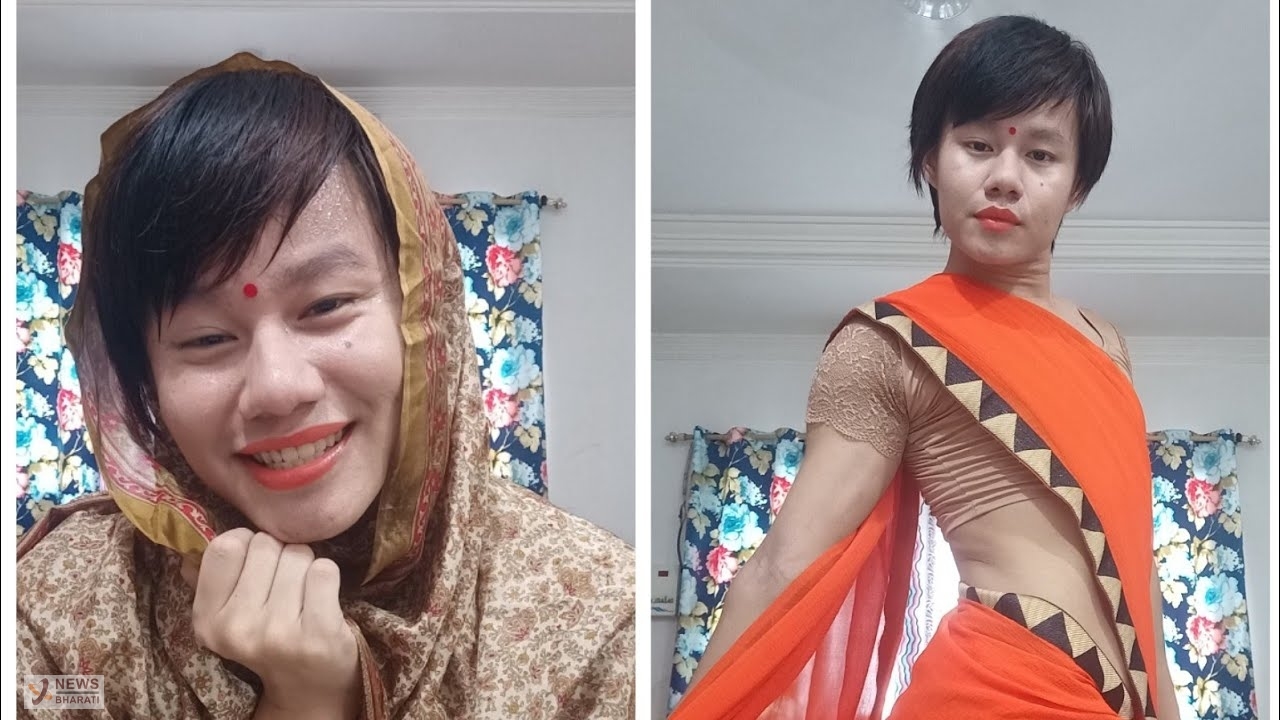TISS, Ambedkar, and Brahminical Patriarchy
Pratik Permey was elected as the students’ union president in November 2022.
Total Views |
On 25th March 2023, the Tata Institute of Social Sciences (TISS) organized the 19th Ambedkar Memorial Lecture where a speaker from the University of North Carolina, US was to speak on ‘Ambedkar Nationalism, And the Need for Contemporary Collaborative Activism’. The event which usually doesn’t attract eyeballs got some limelight for a reason other than the lecture and its content. Pratik Permey, the student union president of TISS was invited as a representative of the students’ union, to welcome the guests and do some formalities. But when he reached the venue, he was told by the organizing committee to change his outfit (blouse and skirt) and come back with formal attire.

Pratik Permey was elected as the students’ union president in November 2022. He identifies himself as a Queer (Q from the term LGBTQ) (refer to our article on Queer Theory) which made him the first queer to win such an election in which Dalit-Advasi-Muslim-Northeast-Queer formed an alliance to achieve the mandate. Pratik comes from a tribal community of Assam and follows the ideology of Ambedkar, Jyotiba Phule, Savitribai Phule, and Ramasamy Periyar.
Also Read: What is Body Positivity?| Wokeism#11
After he was not allowed to attend the above event in a blouse and skirt, he posted this story on the social media platform about how he was humiliated and how his ‘queerness was not allowed to be represented. In his social media post, he apparently went on to blame Brahminical Patriarchy for all this. In his Instagram post, he also said, “As a tribal person, conservation of body parts was never a concern. The village that I came from has a lot of tribal people and they were comfortable with very minimal clothes”.
Maharashtra’s media and intellectual circles have branded the state to be ‘Purogaami Maharashtra’ (progressive Maharashtra) and ‘Shahu-Phule-Ambedkarancha Maharashtra (Shahu-Phule-Ambedkar’s Maharashtra) for the last many years. But the advocates of this theory have remained silent on the above issue. Pratik Permey dragged his queer identity into all this and claimed himself to be a victim of injustice. This is the classic Woke practice of constant victimhood and dragging gender/race/sexual preferences in every issue. As a mere audience to all this, there are a few questions that I would like to put forth.
- How does Pratik Permey’s sexual preference for queerness come into all this?
- Does he mean to say that he was not allowed to the event only because he was queer?
- Does queerness mean wearing a blouse and skirt at an event where formal attire was expected?
- Has queerness reduced itself to a minuscule issue of a blouse and skirt?
- How does Brahminical Patriarchy come into all this? The governance committee of TISS has a representative from the SC/ST community and also an Equal Opportunity Cell for SC/ST and OBC, PWD, EWS, and Minority categories. Does this mean that the SC/ST representative and the above cell were also involved in the imposition of the so-called Brahminical Patriarchy mentioned by Pratik?
- Has Pratik reduced the tribal lifestyle only to wearing minimal clothes?
Pratik Permey’s social media outrage and victimhood of social injustice is the classic case of Culture Marxism, where the established culture of appropriate clothing according to the theme of the event is to be demolished by imposing a culture of wearing anything other than what the event requires. To demolish the culture of appropriate dressing, Pratik needlessly dragged his intersectional identity of queer and tribal (sexuality and race) to make this minuscule thing an event of great social injustice. I hope these things do not reach the doors of sacred Hindu temples where there is a scope of dragging the issue of dressing and then claiming victimhood by giving it an emotional appeal and mixing identities.


